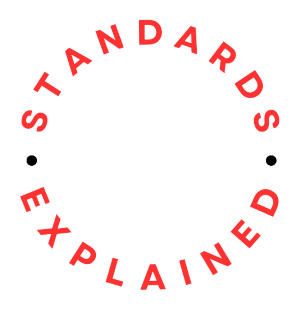ISO 30401:2018 Knowledge management systems — Requirements sets requirements and provides guidelines for establishing, implementing, maintaining, reviewing, and improving an effective management system for knowledge management in organizations.
Who should use the standard?
The standard is intended to support organizations in the development of a management system that promotes and enables value-creation through knowledge. ISO 30401 is applicable to organizations of any type or size, irrespective of the products and services it provides.
What is its scope?
The standard establishes knowledge management principles and requirements as:
- guidance for organizations that aim to be competent in optimizing the value of organizational knowledge;
- a basis for auditing, certifying, evaluating, and recognizing such competent organizations by internal auditors and certification bodies.
What does it cover?
| Introduction |
| 1 Scope |
| 2 Normative references |
| 3 Terms and definitions |
| 4 Context of the organization |
| 4.1 Understanding the organization and its context |
| 4.2 Understanding the needs and expectations of interested parties (stakeholders) |
| 4.3 Determining the scope of the knowledge management system |
| 4.4 Knowledge management system |
| 4.5 Knowledge management culture |
| 5 Leadership |
| 5.1 Leadership and commitment |
| 5.2 Policy |
| 5.3 Roles, responsibilities and authorities |
| 6 Planning |
| 6.1 Actions to address risks and opportunities |
| 6.2 Knowledge management objectives and planning to achieve them |
| 7 Support |
| 7.1 Resources |
| 7.2 Competence |
| 7.3 Awareness |
| 7.4 Communication |
| 7.5 Documented information |
| 8 Operation |
| 9 Performance evaluation |
| 9.1 Monitoring, measurement, analysis and evaluation |
| 9.2 Internal audit |
| 9.3 Management review |
| 10 Improvement |
| 10.1 Nonconformity and corrective action |
| 10.2 Continual improvement |
| Annex A The knowledge spectrum — the range of knowledge management |
| Annex B Relationship between knowledge management and adjacent disciplines |
| Annex C Knowledge management culture |
Implementing ISO 30401
Implementing a Knowledge Management System (KMS) in an organization in accordance with ISO 30401 involves several key steps.
1. Leadership and Commitment
- Demonstrate leadership commitment to knowledge management within the organization.
- Establish a knowledge management policy that aligns with the organization’s objectives.
2. Scope and Context
- Determine the scope of the KMS.
- Understand the internal and external context in which the organization operates, including the needs and expectations of stakeholders.
3. Knowledge Management Policy
Develop a knowledge management policy that outlines the organization’s commitment to knowledge management and its alignment with business goals.
4. Knowledge Management Planning
- Prepare a knowledge management plan that includes objectives, actions, and resources required for effective knowledge management.
- Identify key knowledge management processes and activities.
5. Leadership and Governance
- Establish governance structures and processes for knowledge management.
- Assign responsibilities for knowledge management at different levels within the organization.
6. Knowledge Identification and Capture
- Identify critical knowledge areas and assets within the organization.
- Implement processes to capture and document explicit and tacit knowledge.
7. Knowledge Sharing and Collaboration
- Establish mechanisms and platforms for sharing knowledge and promoting collaboration among employees.
- Encourage a culture of openness and knowledge sharing.
8. Knowledge Accessibility
- Ensure that knowledge is accessible to those who need it.
- Implement technology solutions and tools to facilitate knowledge retrieval and dissemination.
9. Learning and Development
- Develop programs for employee learning and development related to knowledge management.
- Provide training on the use of knowledge management tools and practices.
10. Performance Measurement and Evaluation
- Define key performance indicators (KPIs) to measure the effectiveness of knowledge management.
- Regularly evaluate the performance of the KMS against established KPIs.
11. Continual Improvement
- Establish processes for continual improvement of the KMS.
- Use feedback, lessons learned, and performance data to identify areas for enhancement.
12. Information Security and Compliance
- Ensure that knowledge management activities comply with relevant legal and regulatory requirements.
- Implement measures to secure sensitive and confidential knowledge.
13. Communication and Awareness
- Communicate the importance of knowledge management throughout the organization.
- Raise awareness among employees about their roles in knowledge management.
14. Documentation and Record-Keeping
- Develop and maintain documentation related to knowledge management processes.
- Establish a procedure and process for recording and managing knowledge-related information.
15. External Collaboration
Explore opportunities for collaboration with external partners, suppliers, or other stakeholders to enhance knowledge sharing and innovation.
Some further words of advice…
By following these steps, the organization can implement a KMS in accordance with ISO 30401. Remember that effective knowledge management is an ongoing process; therefore, the organization should continuously monitor, review and improve its knowledge management practices to adapt to changing needs and contexts.
ISO 30401 can be purchased through the ISO.org website.














Comments (0)